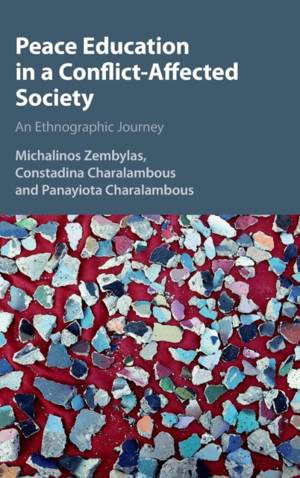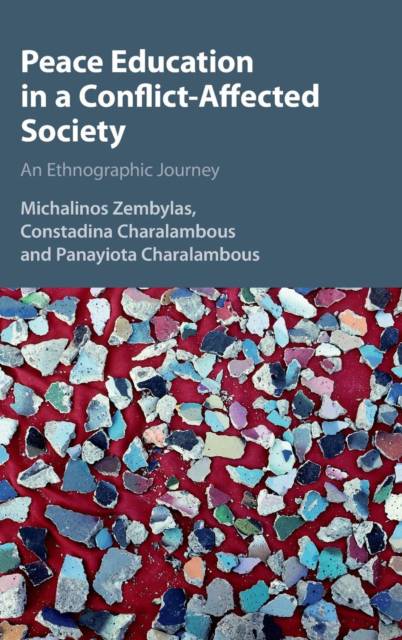
- Afhalen na 1 uur in een winkel met voorraad
- Gratis thuislevering in België vanaf € 30
- Ruim aanbod met 7 miljoen producten
- Afhalen na 1 uur in een winkel met voorraad
- Gratis thuislevering in België vanaf € 30
- Ruim aanbod met 7 miljoen producten
Zoeken
Peace Education in a Conflict-Affected Society
An Ethnographic Journey
Michalinos Zembylas, Constadina Charalambous, Panayiota Charalambous
Hardcover | Engels
€ 187,45
+ 374 punten
Uitvoering
Omschrijving
Peace education initiatives have been subject to heated public debate and so far the complexities involved have not been fully understood. This multilayered analysis examines how teachers negotiate ideological, pedagogical and emotional challenges in their attempts to enact a peace education policy. Focusing primarily on the case study of conflict-affected Cyprus, Michalinos Zembylas, Constadina Charalambous and Panayiota Charalambous situate the Cypriot case within wider theoretical and methodological debates in the field and explore the implications of their findings for theory and practice. Building on current anthropological approaches, the authors use insights from policy studies and sociolinguistics to examine peace education agendas and the ways these are shaped by the dynamics of local politics and classroom practices. This study will be valuable reading for researchers of peace and policy studies as well as for practitioners and policy makers involved in introducing peace education initiatives that challenge teachers' long-held beliefs.
Specificaties
Betrokkenen
- Auteur(s):
- Uitgeverij:
Inhoud
- Aantal bladzijden:
- 286
- Taal:
- Engels
Eigenschappen
- Productcode (EAN):
- 9781107057456
- Verschijningsdatum:
- 21/04/2016
- Uitvoering:
- Hardcover
- Formaat:
- Genaaid
- Afmetingen:
- 152 mm x 229 mm
- Gewicht:
- 548 g

Alleen bij Standaard Boekhandel
+ 374 punten op je klantenkaart van Standaard Boekhandel
Beoordelingen
We publiceren alleen reviews die voldoen aan de voorwaarden voor reviews. Bekijk onze voorwaarden voor reviews.











